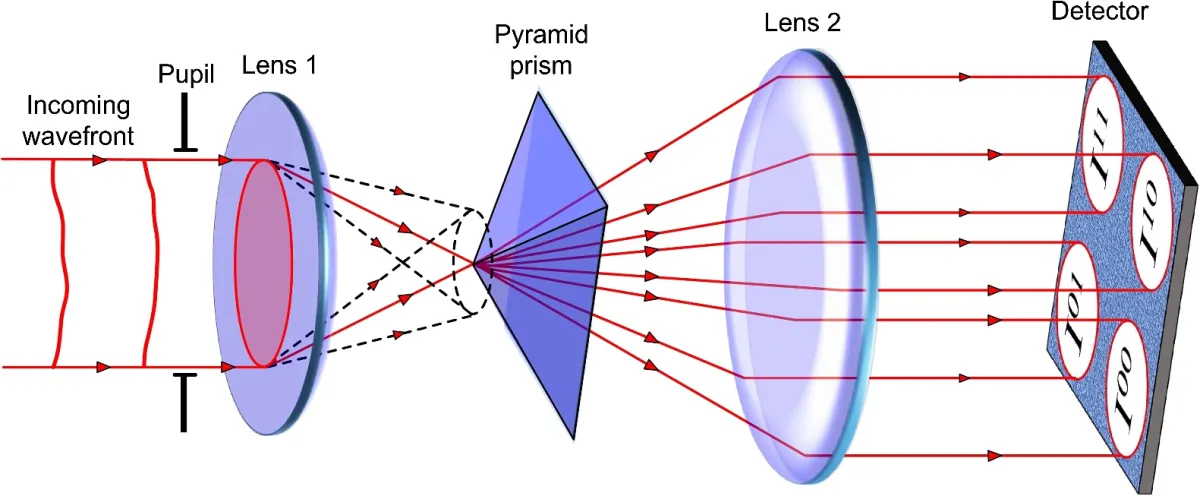Investigating Spatial Light Modulators and Pyramid Wavefront Sensing
This project aims to address the potential of Spatial Light Modulators (SLMs) as highly nonlinear optical elements, including their potential use in pyramid wavefront sensing.
Research themes
Project status
Content navigation
About

This project aims to address the potential of Spatial Light Modulators (SLMs) as highly nonlinear optical elements, including their potential use in pyramid wavefront sensing. Pyramid wavefront sensors (WFSs) have shown promise in accurately measuring and characterizing optical aberrations. However, there is motivation to explore different pyramid designs, and to evaluate the performance of SLM-based pyramid WFSs as a prototype for optical meta-surface pyramid wavefront sensors.
The expected learning outcomes for a student undertaking this project are to:
-
Develop in-depth knowledge about SLMs, their operating principles, and their role in wavefront sensing.
-
Gain expertise in configuring and operating pyramid WFSs, exploring various pyramid designs, and analyzing their advantages and limitations.
-
Acquire practical skills in mitigating light mixing effects, ensuring more accurate wavefront measurements.
-
Develop analytical techniques to measure the linearity of pyramid WFSs and evaluate their precision and reliability.
-
Enhance their communication skills by presenting complex scientific concepts and research findings to both technical and non-technical audiences.
By achieving these objectives, the project will provide valuable insights into the capabilities and limitations of SLM-based pyramid WFSs. The outcomes will contribute to the advancement of wavefront sensing techniques, enabling more accurate characterization of optical aberrations and potentially finding applications in fields such as adaptive optics, imaging systems, and optical metrology.
Proficiency in Python is required, and a background of Fourier Optics is highly valued.


